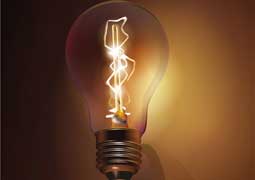
The National Assembly (NA) held a debate on the state of the national electricity utility, Eskom, following recent incidents of load shedding that threatened the economy of the country.
During the discussion on the topic: “Eskom Energy Crisis”, which was led by Democratic Alliance Member of Parliament, Ms Natasha Mazzone, the different political parties shared their views and suggestions on what should be done to rescue Eskom and ensure a reliable energy supply for the country.
Supporting, in principle, President Cyril Ramaphosa’s announcements on plans to unbundle the state-owned power supplier into three different entities, Ms Mazzone said the split will not be enough to save Eskom, arguing that more needed to be done to turn around the company.
“The financial lifeline and split of Eskom into three entities will not be enough to save Eskom. Even with the three units will still be only one board calling the shots – what Eskom needs is a complete overhaul, not a mere rejig.
“The kind of overhaul needed at Eskom should mean splitting Eskom into a generation entity completely independent from a distribution/transmission entity. The generation entity should be privatised over time, where well-functioning power stations can be offloaded to the private sector to create much-needed competition,” she said.
Ms Mazzone, a member of the Portfolio Committee on Public Enterprises, which is responsible for oversight on state companies, added that the crisis at Eskom should not be allowed to get worse and called on government to take urgent action.
“We should be terrified at what exactly could happen if this crisis worsens, and as government, every single effort and every single action should be focused on averting this crisis,” she said.
She said her party, the DA, has tabled an “electricity Bill” before Parliament, which seeks to create a cheaper and more stable energy sector. “The Bill was gazetted in Parliament for public comment and is the first real concrete step to changing Eskom’s structure.”
Another member of the National Assembly, Mr Nqabayomzi Kwankwa, said the unbundling of Eskom, “while one of the viable options, is not necessarily a panacea to our energy challenge”.
He said South Africa needed to move away from the “idea that building more of the same will fix our problems”.
“We must look into the development of a new and sustainable energy infrastructure that can turn South Africa into a leader in sustainable energy. The focus of energy must move away from traditional sources of energy generation such as coal and other electricity generators, towards sustainable energy sources so that a modern sustainable energy infrastructure is developed,” said Mr Kwankwa.
He proposed that the country must develop a policy to ensure that municipalities generate their own energy using alternative sources.
The proposed unbundling of Eskom received strong opposition from EFF MP Mr Mogamad Paulsen, who warned that the “process to privatise Eskom has already begun”, though the President and his Cabinet ministers have repeatedly emphasised that there were no plans to privatise Eskom.
Mr Paulsen said: “There is no unbundling that will happen without the intention to privatise Eskom, and the process to privatise Eskom has already begun. To privatise SOEs, especially those that are strategic, you collapse them, make them unworkable and frustrate the masses, as is currently happening with load shedding. Then once everybody is angry with the state, you present private investors as saviours.”
He said this wold lead to a situation where “the fox will guard the hen house”, and electricity prices will skyrocket.
Mr Paulsen made the following proposals and called them “the most efficient solutions”: cancel all Independent Power Producers (IPPs), Eskom must take all its mines from private companies, develop detailed register of its assets, and a state-owned coal company must operate these coal mines.
“Eskom must undertake large-scale maintenance projects of all ailing infrastructure, build a large network of railways around all coal mines to lower the cost of transportation and lessen the damage on our roads,” said Mr Paulsen.
Participating in the discussions, Ms Zukiswa Rantho, who chaired the parliamentary inquiry into Eskom last year, encouraged the Minister of Public Enterprises to present Eskom’s recovery plans and ensure that the working class and poor people also benefit from the planned reconfiguration of SOEs.
“If the Minister fails to account frankly and honestly to Parliament about the state of Eskom and its recovery plans, we will judge him harshly, as we have done with some of his predecessors. We call on all our business people, lenders, organised workers and communities to be part of a constructive national debate to find lasting solutions to the Eskom crisis.
“We call on the Minister and government to ensure that our people, particularly the working class and the poor, will benefit from the reconfiguration of SOEs. The development of green and clean technologies is unavoidable as part of our transition from coal-based electricity and energy-intensive industries that were built around the affordable and abundant supply of coal,” said Ms Rantho.
By Sakhile Mokoena
22 February 2019

